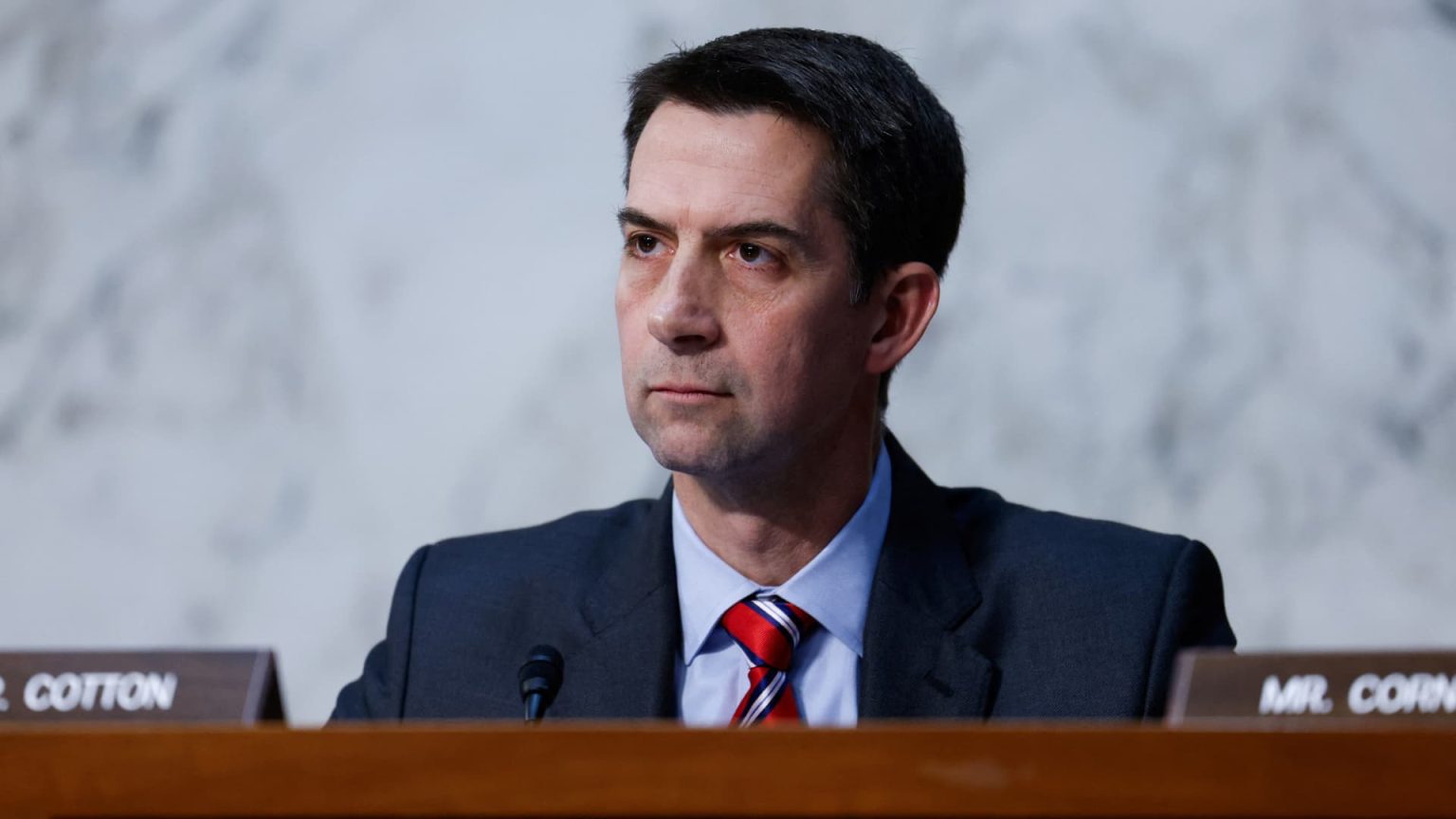Sen. Tom Cotton, R-Ark., has sparked controversy with his recent comments urging people stuck in traffic due to cease-fire protests to forcibly remove demonstrators from the roads. In a video posted on X, Cotton showed individuals dragging protesters off the road by their legs and jackets, allowing cars to pass through. He expressed approval of this action, stating “How it should be done.” The demonstrations causing traffic blockages were aimed at raising awareness of the conflict in Gaza and took place on the Golden Gate Bridge in San Francisco, as well as in cities like Chicago, Seattle, and New York.
During a Fox News interview, Cotton suggested that if similar protests occurred in Arkansas, the protesters would face physical consequences at the hands of the people affected by the road blockages. He stated, “If they glued their hands to a car or the pavement, well, probably pretty painful to have their skin ripped off but I think that’s how we would handle it in Arkansas.” This inflammatory rhetoric was met with criticism from individuals like former speechwriter for President Obama, Jon Favreau, who labeled Cotton’s comments as encouraging vigilante violence.
Cotton is no stranger to controversial statements, having faced backlash in 2020 for calling for the use of the Insurrection Act to deploy troops against George Floyd protesters in a New York Times op-ed. This led to widespread condemnation of both Cotton and The New York Times for publishing his article. The senator’s office did not respond to requests for comment regarding his recent remarks encouraging people to take action against protesters blocking traffic. Despite the backlash, Cotton has stood by his comments, reiterating his belief that individuals should take matters into their own hands to remove protesters from the roads.
The senator’s stance on dealing with protesters has raised concerns about the potential for escalation and violence in response to political demonstrations. Cotton’s calls for individuals to physically remove protesters from roadways has ignited debate over the appropriate ways to address public protests and the right to peaceful assembly. Critics argue that Cotton’s rhetoric encourages vigilantism and undermines the principles of nonviolent protest and civil disobedience. The senator’s approach to handling dissenting voices has drawn criticism from those who believe in the importance of protecting the right to protest and express dissent peacefully.
As the debate over how to handle protests continues, Cotton’s comments serve as a reminder of the tensions surrounding public demonstrations and the right to free speech. His advocacy for individuals to take action against protesters blocking traffic highlights the growing divide between those who support more aggressive tactics to quell protests and those who emphasize the importance of upholding the right to peaceful assembly. The controversy surrounding Cotton’s remarks underscores the challenges of balancing public safety with protecting constitutional rights, as well as the role of elected officials in promoting civil discourse and respectful dialogue in times of heightened political tension.













